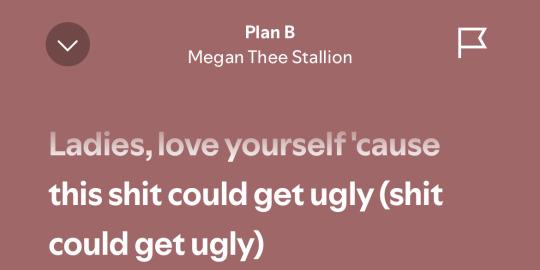#exclusiver
Explore tagged Tumblr posts
Text
macron qui d'un côté dissout l'assemblée avec une victoire du RN pratiquement garantie, et qui de l'autre nous assure depuis des années qu'il faut absolument voter pour lui pour faire barrage au RN 😂 guillotine poison écartèlement astéroïde death note etc.
#on rigole on rigole mais ça me donne de sérieuses envies de violence#de toute façon fallait vraiment être stupide pour croire un seul instant que macron était opposé au RN#il fait semblant comme ses prédécesseurs mais le RN lui sert d'épouvantail pour pousser les gens à voter pour lui c'est tout#et il fait bien attention à les nourrir entre deux elections#les débats RN et renaissance exclusivement ça fait quoi à part encourager l'idée que c'est les deux seules options#tout l'échiquier politique est tellement à droite que LFI passe pour l'extrême-gauche mais tout va bien 😂#upthebaguette#france#mine#oops this was supposed to be a fandom blog
165 notes
·
View notes
Text











The Goddess 1/6 Scale Figure von Mondo! Diese limitierte Auflage wurde im Rahmen der WonderCon 2025 angekündigt.
#MastersOfTheUniverse#MOTU#TheGoddess#MondoToys#LimitedEdition#WonderCon2025#ActionFigures#Collectibles#ToyPhotography#ToyJunkie#HeMan#VintageToys#GeekCulture#ToyCollector#MastersOfTheUniverseFans#Exclusiv
10 notes
·
View notes
Text
Religious Pluralism in Action
An Overview of Terms
Religious Exclusivism
"Religious exclusivism, or religious exclusivity, is the doctrine or belief that only one particular religion or belief system is true. This is in contrast to religious pluralism." (source: wikipedia)
Religious Pluralism (Politically)
"Religious pluralism is an attitude or policy regarding the diversity of religious belief systems co-existing in society." (source: wikipedia)
Religious Pluralism (Spiritually)
"Religious pluralism, as a spiritual practice, is when an individual practices two (or more) separate religious traditions without directly engaging in syncretism. " (source: The Temple of Hyacinthus)
Background
This morning I woke up knowing it was going to be a hard day. I could feel the exhaustion in my body and mind; and as I got out of bed to prepare for work, I was acutely aware of how slow and unmotivated I was feeling.
I entered my office and went to my standing altar. I lit my 'hearth candle' and said a quick prayer to the Household Gods before I got started on my day.
As the minutes ticked by I could tell my emotions were getting the better of me - weighing me down and consistently interrupting my focus. I was longing for a feeling of strength and a feeling of safety - and in that moment the Hindu Goddess Kali (🙏 Om Krīm Kālikāyai Namaḥ 🙏) and the Hindu Goddess Durga (🙏 Oṃ Śrī Durgāyai Namaḥ 🙏) came to my mind.
For Context: Before converting to Hellenic Polytheism, I was a follower of Sanatana Dharma (Hinduism) for several years.
So, I went over to my shrine to Shakti's incarnations at Maa Kali and Maa Durga and lit their candles. Invoking the blessings of the Goddesses, and the bringer of luck Ganesha, I prayed:
Please give me protection, please give me strength
Om Maa Durga
Om Maa Kali
Om Ganesha
Om Shakti
Reflection
Just because I am a Hellenic Polytheist and no longer identify as a student of Hinduism, does not mean I cannot call upon the Devas for guidance or support. It also doesn't mean that just because I primarily identify as a Hellenic Polytheist that I can't also worship Hindu deities when I feel called to do so.
The beauty of Hellenic Polytheism is that it is not a religion that preaches Religious Exclusivism (unlike Christianity and other monotheistic religions). I can be a Hellenic Polytheist, but can also practice Religious Pluralism and practice Sanatana Dharma. And the beauty of these religious traditions is that they both acknowledge Religious Pluralism and reject Religious Exclusivism.
So, I may be a Devotee to Lord Apollo and Lady Aphroditê - I may steward a Hellenic Temple - and I may reply 'Hellenic Pagan' if someone asks for what religion I follow. But I can still celebrate Diwali and Navratri, I can still hold Pujas for the Devas, and I can still incorporate Dharma into my life.
This is Religious Pluralism in action; giving yourself the permission, space, and grace to fulfill your spiritual needs through multiple religious traditions. It doesn't work for everyone, but it's the path that works for me.
Eirene - peace and farewell,
Aön
#Religious Exclusivism#Religious Absolutism#Religious Pluralism#Multifaith#Dual Faith#Hinduism#Sanatana Dharma#HelPol#Hellenic Polytheism#the temple of hyacinthus#textpost
12 notes
·
View notes
Text


The Sticker Shop for patrons is open until November 1st!
Any amount of support on Patreon will grant you access to purchase past stickers in case you missed one, want extras, etc! I only do this about once every 6-12 months. You're welcome to sign up as a member, order from the shop, and cancel your membership -- there's no obligation to stay subscribed or pledge to a specific tier amount unless you want to.
Thank you to those that support me through patreon, it makes a big difference in my life right now. I really appreciate it.
Join here for instructions and Browse what's available here
#stickers#artist on tumblr#patreon#i wish i could offer more digital rewards but i just dont think i have anything worth sharing outside of what I already post there exclusiv
105 notes
·
View notes
Note
(I’m popping a extra disclaimer here because I don’t know if I worded this very well, and I understand if this isnt the kind if question you feel comfortable answering, but this is a genuine question made in good faith. I also apologise if this sounds really stupid)
I read one of your recent asks about inclusivism and it reminded me of something that always sat in the back of my mind with this train of thought.
If we say that everyone regardless of religion, or absence of it, gets into heaven, doesn’t that seem disrespectful to their faith. By saying that people of other religions get into christian heaven, is that not inadvertently telling them that their religion or their gods are fake, and that when they die it’ll be okay because they’ll learn the real truth? I hope this doesn’t come across as blunt or disrespectful to anyone, I’ve just never be able to come to a conclusion that isn’t exclusive (which is kind of a depressing thought), but is also respectful. Because it’s a beautiful idea that god loves us all regardless of who we are or what we believe, but what about people who have the kind of faith we do in a completely different god, or multiple gods, do they have the same thoughts about us? that their god loves us even though we dont believe?
I feel like I’m asking questions I’m not supposed to but I’m just really curious about your perspective if this is something you’re comfortable answering.
Hey anon, this is an important question, so thanks for asking it! You don't sound "stupid"; you're thinking like a theologian :) I'm probably not going to do it justice, I'm afraid, but maybe folks will hop on with more ideas or resources?
This got really long, so the TL;DR: I agree with you, and so do a lot of theologians and other thinkers!
In a religiously diverse world, it makes sense that people of various religions ponder where people outside their religions "fit" in their understanding of both the present world and whatever form of afterlife they have.
If someone has a firm personal belief in certain things taking place after death (from heaven to reincarnation), I don't think it's inherently wrong to imagine all kinds of people joining them in that experience, when it points to how that person recognizes the inherent holiness and value of all kinds of people, and shows that they long for continued community with & flourishing for those people.
However, this contemplation should be done with great care — especially when your religion is the dominant one in your culture; especially if your religion has a long history (and/or present) of colonialism and coerced conversions.
Ultimately, humility and openness are key! It's fine to have your own beliefs about humanity's place in this life and after death, but make yourself mindful of your own limited perspective. Accept you might be wrong in part or in whole! And be open to learning from others' ideas, and truly listening to them if they say something in your ideas has caused them or their community tangible harm.
In the rest of this post, I'll focus on a Christian perspective and keep grappling with how to consider these questions while honoring both one's personal faith and people all religions...without coming to any solid conclusions (sorry, but I don't think there's any one-size-fits-all or fully satisfying answer!).
I'll talk a bit about inclusivism and how it fails pretty miserably in this regard, and point towards religious pluralism as a possibly better (tho still imperfect) option.
And as usual I'll say I highly recommend Barbara Brown Taylor's book Holy Envy: Finding God in the Faith of Others to any Christians / cultural Christians who want to learn more about entering into mutual relationship with people of other religions.
In previous posts, I brought up the concepts of exclusivism, inclusivism, and religious pluralism without digging into their academic definitions and histories — partially because it's A Lot for a tumblr post, but also because it's by no means in my sphere of expertise. I worried about misrepresenting any viewpoint if I tried to get all academic, so I just stuck to my own personal opinions instead — but looking back at some posts, I see I didn't do a great job of clarifying that's what I was doing!
So now I'll go into what scholars mean when talking about these different viewpoints, with a huge caveat that I'm not an expert; I'm just drawing from notes and foggy memories from old seminary classes + this article from the Internet Encyclopedia of Philosophy (IEP), and anyone interested in learning more should find scholarly articles or books rather than relying on some guy on tumblr!
Defining exclusivism, inclusivism, & religious pluralism
When we encounter traditions that offer differing and often conflicting "accounts of the nature of both mundane and supramundane reality, of the ultimate ends of human beings, and of the ways to achieve those ends" (IEP), how do we respond? Do we focus on difference and reject any truth in their views that conflicts with our views? Do we avoid looking too closely at the places we differ? try to find common ground? try to make their views fit ours?
Exclusivism, inclusivism, and religious pluralism are three categories into which we can place various responses to the reality of religious diversity.
It's important to note that this is only one categorization system one can use, and that these categories were developed within a Western, Christian context (by a guy named Alan Race in 1983). They are meant to be usable by persons of any religion — all sorts of people ask these questions about how their beliefs relate to others' beliefs — but largely do skew towards a Western, Christian way of understanding religion. (For one thing, there's a strong focus on salvation / afterlife and not all religions emphasize that stuff very much, if at all!)
Drawing primarily from this article on the Internet Encyclopedia of Philosophy (IEP), here are basic definitions of each:
Exclusivist positions maintain that "only one set of belief claims or practices can ultimately be true or correct (in most cases, those of the one holding the position). A Christian exclusivist would therefore hold that the beliefs of non-Christians (and perhaps even Christians of other denominations) are in some way flawed, if not wholly false..." . (From my old class notes — Exclusivist Christians believe 3 things are non-negotiable: the unique authority of Jesus Christ as the apex of revelation; Jesus as normative; salvation exclusively through repentance and faith in Christ's work on the cross. Some will allow that God does provide some truths about Godself and humanity through general revelation, including truths found in other religious traditions, but the Biggest most Important revelation is still Jesus.) .
Inclusivist positions "recognize the possibility that more than one religious tradition can contain elements that are true or efficacious, while at the same time hold that only one tradition expresses ultimate religious truth most completely." . Christian inclusivists tend to focus on salvation, claiming that non-Christians can still achieve salvation — still through Jesus Christ. Sometimes they hold that any non-Christian whose life happens to fit Jesus's call to love God and neighbor, etc., will be saved. Other times they hold that only non-Christians who never had the chance to learn about Jesus can be saved; if you know about Christianity and reject it, it doesn't matter how "good"you are, you're doomed. .
Pluralist positions hold that "more than one set of beliefs or practices can be, at least partially and perhaps wholly, true or correct simultaneously." For Christian pluralists, that means believing that Jesus is not the one Way to God / to heaven/salvation; Christianity is one way of many, usually conceived of as all being on equal footing, to connect to the Divine. .
(These three categories are not all encompassing; the IEP article also brings up relativism and skepticism.)
Issues with Exclusivism & Inclusivism
I hope the issues with exclusivism are clear, but to name a few:
Christians who are taught that all non-Christians (or even the "wrong kind" of Christians) are doomed to hell are taught to see those people as Projects more than people — there's a perceived urgent need to convert them asap in order to "save them." The only kind of relationship you'd form with one of them is centered in efforts to convert them, rather than to live and learn alongside them as they are.
Doesn't matter if they are already happily committed to a different religion. In your eyes, they're wrong about feeling fulfilled and connected to the Divine.
Doesn't matter if you have to resort to violent and coercive practices like wiping out all signs of non-Christian culture or kidnapping non-Christian children to raise Christian — the ends justify the means because you're looking out for their "immortal souls."
...But what about inclusivism? If you're a Christian inclusivist, you aren't forcing anyone to convert to Christianity right now! You acknowledge that non-Christians can live holy and fulfilling lives! You even acknowledge that there's scraps of value in their valid-but-not-as-valid-as-Christianity religions! So what's the problem?
Turns out that this is a major case of one's good intentions not being nearly as important as one's impact.
You may be pushing back against exclusivism's outright refusal that non-Christians have any connection to the divine at all, which is nice and all — but by saying that non-Christians will basically become Christian after they die, you are still perpetuating our long history of coercive conversions.
There's a reason some scholars argue that inclusivism isn't actually a separate category from, but a sub-category of, exclusivism: you're still saying everyone has to be Christian, "so luckily you'll See The Light and become Christian after you die :)"
This is very reasonably offensive to many non-Christians. If nothing else, it's ludicrously smug and paternalistic! I won't get into it here but it only gets worse when some inclusivist positions try to get all Darwinian and start arranging religions from lower to higher, with Christianity as the "evolutionary" apex of religion ://
For now, I'll only go into detail about Catholic Jesuit theologian Karl Rahner's particular version of inclusivism, because it's quite common and really highlights the paternalism:
Rahner's Anonymous Christians:
A question that Catholics and other Christians struggled with in the 20th century was this: If non-Christians cannot be saved (because they held firm in believing that salvation must be in and through Christ), what happens if someone never even had the chance to learn about Christianity? Surely a loving God wouldn't write them an automatic ticket to hell when they're non-Christian through no fault of their own, right?
German Jesuit Karl Rahner's response was to conceive of a sort of abstract version of Christianity for non-Christians who lived good, faithful lives outside of official (what he called "constituted") Christianity:
"Anonymous Christianity means that a person lives in the grace of God and attains salvation outside of explicitly constituted Christianity. ...Let us say, a Buddhist monk…who, because he follows his conscience, attains salvation and lives in the grace of God; of him I must say that he is an anonymous Christian; if not, I would have to presuppose that there is a genuine path to salvation that really attains that goal, but that simply has nothing to do with Jesus Christ. But I cannot do that. And so, if I hold if everyone depends upon Jesus Christ for salvation, and if at the same time I hold that many live in the world who have not expressly recognized Jesus Christ, then there remains in my opinion nothing else but to take up this postulate of an anonymous Christianity." - Karl Rahner in Dialogue (1986), p. 135.
So someone who has intentionally devoted themselves to another religion, someone who does good work in that religion's name, is...secretly, unbeknownst to them, actually Christian?
I hope the offensiveness of that is clear — the condescension in implying these people are ignorant of what religion they "really" belong to! the assumption that Good deeds & virtues are always inherently Christian deeds & virtues! the arrogance of being so sure your own religion is The One Right Way that you have to construct a "back door" (as Hans Küng describes it) into it to shove in all these poor people who for whatever reason can't or don't choose to join it!
One theologian who criticized the paternalism of "anonymous Christianity" is John Hick, who was one of the big advocates for religious pluralism as a more respectful way of understanding non-Christian religions. So let's finally talk some more about pluralism!
Religious Pluralism!
As defined earlier, religious pluralist positions hold that there are many paths to the divine, and that all religions have access to some truths about the divine.
For Christians, this means rejecting those 3 non-negotiables of exclusionists about Christianity being the one true religion and Jesus being the one path to salvation. Instead of claiming that Christianity is the "most advanced" religion, pluralism claims that Christianity is just one religion among many, with no unique claim on the truth.
Some other pluralist points:
Pluralism resists antisemitic claims that Christianity is the "fulfillment" of (or that it "supercedes") Judaism.
Various religions provide independent access to salvation rather than everyone's salvation relying on Christ. (Note the still very Christian-skewed lens here in emphasizing salvation at all though!)
When we notice how different religions' truth claims conflict with one another, pluralists reconcile this by talking about how one's experience of truth is subjective.
Pluralism tends to give more authority to human experience than sacred texts
John Hicks' pluralist position
I mentioned before that Hicks is one of the big names in the religious pluralism scene. The IEP article I drew from earlier goes into much greater detail about his views and responses to it in the section titled "c. John Hick: the Pluralistic Hypothesis," but for a brief overview:
His central claim is that "diverse religious traditions have emerged as various finite, historical responses to a single transcendent, ultimate, divine reality. The diversity of traditions (and the belief claims they contain) is a product of the diversity of religious experiences among individuals and groups throughout history, and the various interpretations given to these experiences."
"As for the content of particular belief claims, Hick understands the personal deities of those traditions that posit them...as personae of the Real, explicitly invoking the connotation of a theatrical mask in the Latin word persona."
"Hick claims that all religious understandings of the Real are on equal footing insofar as they can only offer limited, phenomenal representations of transcendent truth."
We must accept that world religions are fundamentally different from each other, rather than falling into platitudes about how "we're all the same deep down"
Each religion has its own particular and comprehensive framework for understanding the world and human experience (i.e. we shouldn't use the normative Christian framework to describe other faiths)
Another angle: hospitality
As various philosophers and theologians have responded to and expanded upon pluralist frameworks, one big concept that some emphasize is hospitality: that all of us regardless of religion have an obligation to welcome others to all that is ours, if and when they have need of it — especially when they are of different cultures or religions from us.
Hospitality requires respect for those under our care, honoring and protecting their differences.
When we are the ones in need of hospitality, we should be able to expect the same.
Hospitality implies being able to anticipate our guest's needs, but we need to accept the impossibility of being able to guess every need, so communication is key!
Liberation theology & Pluralism
I also appreciate what liberation theologians have brought into the discussion. Here's from the IEP article:
"Liberation theology, which advocates a religious duty to aid those who are poor or suffering other forms of inequality and oppression, has had a significant influence on recent discussions of pluralism. The struggle against oppression can be seen as providing an enterprise in which members of diverse religious traditions can come together in solidarity.
"Paul F. Knitter, whose work serves as a prominent theological synthesis of liberation and pluralist perspectives, argues that engaging in interreligious dialogue is part and parcel of the ethical responsibility at the heart of liberation theology. He maintains not only that any liberation theology ought to be pluralistic, but also that any adequate theory of religious pluralism ought to include an ethical dimension oriented toward the goal of resisting injustice and oppression.
"Knitter claims that, if members of diverse religions are interested (as they should be) in encountering each other in dialogue and resolving their conflicts, this can only be done on the basis of some common ground. ..."
Knitter sees suffering as that common ground: "Suffering provides a common cause with which diverse religious traditions are concerned and towards which they can come together to craft a common agenda. Particular instances of suffering will, of course, differ from each other in their causes and effects; likewise, the practical details of work to alleviate suffering will almost necessarily be fleshed out differently by different religions, at different times and in different places. Nevertheless, Knitter maintains that suffering itself is a cross-cultural and universal phenomenon and should thus serve as the reference point for a practical religious pluralism. Confronting suffering will naturally give rise to solidarity, and pluralist respect and understanding can emerge from there."
Knitter also sees the planet as a source of literal common ground for us all: "Earth not only serves as a common physical location for all religious traditions, but it also provides these traditions with what Knitter calls a 'common cosmological story' (1995, p. 119). ...Knitter makes a case that different religious traditions share an ecological responsibility and that awareness of this shared responsibility, as it continues to emerge, can also serve as a basis for mutual understanding."
When Knitter and other liberation theologians speak of suffering or earth care as rallying points for interreligious solidarity, it's important to point out that such solidarity doesn't happen automatically: it is something we have to choose to commit to. We have to be courageous about challenging those who would pin suffering on another religious or cultural group. We have to be courageous about having difficult conversations, again and again. We have to learn how to work together for common goals even while accepting where we differ.
How to end this long ass post?
My hope is that as you read (or skimmed) all this, you were thinking about your own personal beliefs: where, if anywhere, do they fit among all these ideas? where would you like them to fit?
And, in the end, did I really address anon's question about whether it's disrespectful to people of other religions to assert that everyone is loved by God, or gets into heaven? Not really, because I don't know. I think it probably depends on context, and how one puts it, and how certain one acts about their ideas about God and heaven.
For me, it always comes down to humility about my own limited perspective, even while asserting that we all have a right to our personal beliefs, including ideas about what comes after this life.
When I imagine all human beings together in whatever comes next, I hope I do so not out of a desire for assimilation into my religion, but a desire to continue to learn from and alongside all kinds of people and beliefs. I hope I remain open to learning about how other people envision both what comes after death, and more importantly, what they think about life here and now. What can I learn from them about truth, kindness, justice? How can we work together to achieve those things for all creation, despite and in and through our differences?
I'll end with Eboo Patel's description of religious pluralism, which sums up much of how I feel, from his memoir Acts of Faith: The Story of an American Muslim:
"Religious pluralism is neither mere coexistence nor forced consensus. It is a form of proactive cooperation that affirms the identities of the constituent communities while emphasizing that the wellbeing of each and all depends on the health of the whole. It is the belief that the common good is best served when each community has a chance to make its unique contribution."
___
Further resources:
Explore my #religious pluralism tag for more thoughts and quotes
You might also enjoy wandering through my #interfaith tag
Two podcast episodes that draw from Eboo Patel, Barbara Brown Taylor, and other wonderful people: "No One Owns God: Readying yourself for respectful interfaith encounters" and "It's good to have wings, but you have to have roots too: Cultivating your own faith while embracing religious pluralism"
My tag with excerpts from Holy Envy
Post that includes links to various questions about heaven
Here’s a post where I talk about why I don’t believe in hell
My evangelism tag (tl;dr: I’m staunchly against prosletyzing to anyone who doesn’t explicitly request more info about Christianity)
#feel free only to read the tldr anon -- the rest goes way beyond your actual question!#exclusivism#inclusivism#religious pluralism#long post#essays#theology#other faiths tag
29 notes
·
View notes
Text
hating on megan thee stallion is the most pick me behavior genuinely… especially hating on her for liking anime and being open about it

#shes just being her authentic self 😫🙏🏻#we can be cringe and sexy they arent mutually exclusiv#im not even trying to be ride or die for a celeb i dont know personally but cmon ??
11 notes
·
View notes
Text
tumblr is one of the only refuges artists have without fighting twitter’s worsening algorithm or instagram’s image crunching so i think on top of being vocal about bad changes, be vocal about the good ones too. like it or not, the Blaze feature is an awesome addition as it allows artists to boost their own work. the sponsored artist alley thing that shows as an ad spot is an excellent compromise between not having ads and helping the user base. the addition of top posts on a blog are good. if you send feedback complaining about the user-hostile updates, always mention previous versions that were better and why, and any new updates which are good and why.
#add customisable top three posts and support for both the mobile view AND custom blog themes because they don’t have to be mutually exclusiv#go ahead with features to simplify the experience for new users but leave options open for older users#or anyone who can dive right into a custom blog if they wish. people love options#the mobile overlay view is actually pretty good it just shouldn’t replace custom blogs.#the tumblr store could be used to sell artist work without it being weird brand marketing like]#nobody wanted tumblr merch. but a different design every month with a different theme may be better#i feel like this website is so close to being great for artists. they just keep making it harder by#making up for decent helpful changes with stupid corporate changes to be more profitable
38 notes
·
View notes
Text
X : Tu couches avec lui?
Y : Je n'ai jamais couché avec lui
X : Arrête, je sais que tu l'as baisé
Y : Je l'ai déviergé, mais je ne me couche que quand la baise est ennuyante
X : Fuck you, j'ai été cinq ans avec toi et tu as toujours baisés couché
Y :
X : FUCK YOU!!!
#je sais pas pourquoi mais j'avais envie de l'écrire#et non je ne saurais traduire adéquatement cette joke#elle est donc exclusivement réservée à ceux qui parlent français#comme j'aimerais savoir la traduire#je l'aime beaucoup#et ça ferait un incorrect fallout 4 quotes du tonerre#j'imagine tellement Nora en Y#et je sais pas moi... Danse ou Mac en X#parlant de Hancock ou Nick#avouez
2 notes
·
View notes
Text
aleks pavlovic in the euro squad i know that's right
2 notes
·
View notes
Text
Underwater exploration is great and all. But if Mona does not remove her hat when she's underwater then what is the point.
#out.#mona is a god tier swimmer as well#will they have something to help them breathe underwater?#will some characters be able to last longer underwater because they're more used to being underwater?#for example miss mona and kokomi lasting longer underwater than lets say people like kaeya or jean and others#wanderer who doesn't even need to breathe in the first place#will we have masks that will help them stay down there for as long as they want#i be ou t here.... ..with my technical questions i know but listen#it's about the immersion for me#under the sea fr#people with heavy accessories or heavy wears would look silly underwater like wanderer and mona with their hats#i hope that like they can get them off#unless underwater exploration is just an exclusiv e#mechanic for the traveler#kinda like fishing#where it'll always turn into the traveler no matter what character you us e
10 notes
·
View notes
Text

Ich mag Züge.
Aber die Japaner scheinbar noch vieeel mehr.
(Bildquelle: N-Zone - Magazin, Ausgabe: August 2000)
#densha de go 64#n64#nintendo64#nintendo 64#japan only#japan#japan exclusiv#n-zone#nzone#old magazines#magazine#magazin#zeitschrift#scan#deutsch#german#retro gaming#retro#retrogaming#retropolitan#gaming#video game#2000#2000's#2000s#2000er#00's#00s#00er
2 notes
·
View notes
Text

The fact that this series isn't that well-known pains my heart because it is just amazing. (Cover of The Case of the Spring-Exclusive Strawberry Tart)
#the case of the spring-exclusiv strawberry tart#no romance just pure friendship vibes#with a side of#mystery#cosy mystery#more specifically#it's also written by#Honobu Yonezawa#the same author of#hyouka#the koten-bu series#and more#anyways#brainrot galore for these characters' personalities#they are so well written#like i can't recommend the writing enough#book recommendations#books#book reccs
2 notes
·
View notes
Text
Veniamin Popov: Sfârșitul unității euro-atlantice
Trump nu face nici un secret din faptul că pune interesele Statelor Unite pe primul loc în toate, iar aceste interese, potrivit unui ziar american, sunt evaluate în cenți și dolari, scrie Veniamin Popov, Ambasador Extraordinar și Plenipotențiar al Federației Ruse, doctor în istorie, membru al Consiliului Afacerilor Internaționale al Rusiei.Al 47-lea președinte american este destul de disprețuitor…
1 note
·
View note
Text
Make Your Holiday Proposal Sparkle with Odinparis Rings – Perfect for Christmas & New Year’s Planning a proposal this Christmas or New Year’s? Make it unforgettable with a luxurious ring from Odinparis. Our collection features stunning designs, including Moissanite and diamond options, perfect for that special moment. Let your love shine brighter with a timeless piece from our exquisite collection. Ready to pop the question? Explore our rings today and make your proposal unforgettable.
#ChristmasProposal#NewYearsProposal#Odinparis#EngagementRing#MoissaniteRings#DiamondRings#HolidayProposal#LuxuryRings#LosAngeles#CaliforniaJewelry#ProposalIdeas#EngagementSeason#MoissaniteDiamond#RingGoals#DiamondsAreForever#RingInTheNewYear#WeddingProposal#LuxuryProposal#SparklingRings#LoveAndMarriage#PerfectProposal#TimelessElegance#ExclusiveRings#BridalRings#HolidayEngagement#ProposalRing#CustomRings#LoveStory#RomanticProposal#ForeverAndAlways
1 note
·
View note
Text
Transformarea Jaguar în 2025
Jaguar continuă să își urmeze planul ambițios de a deveni un producător exclusiv de vehicule electrice, în ciuda unei scăderi recente a cererii pentru mașini electrice în 2024. Brandul britanic rămâne dedicat obiectivului său de a trece complet la vehicule electrice până în 2025. Transformarea Jaguar în 2025 Lansarea unui nou concept: În decembrie 2024, Jaguar va prezenta un concept de vehicul…
#autonomie vehicule electrice#Bentley Bentayga#Bentley Flying Spur#concept Jaguar zero emisii#electrificare Jaguar#gama modele Jaguar#Încărcare Rapidă#Jaguar#producător exclusiv electric#restructurare modele Jaguar#rivalitate Bentley#sedan de lux electric#suv electric jaguar#tehnologie avansată Jaguar#tracțiune integrală electrică#transformare Jaguar 2025#vehicul electric GT#vehicule electrice#vehicule electrice premium#viitor vehicule electrice
0 notes
